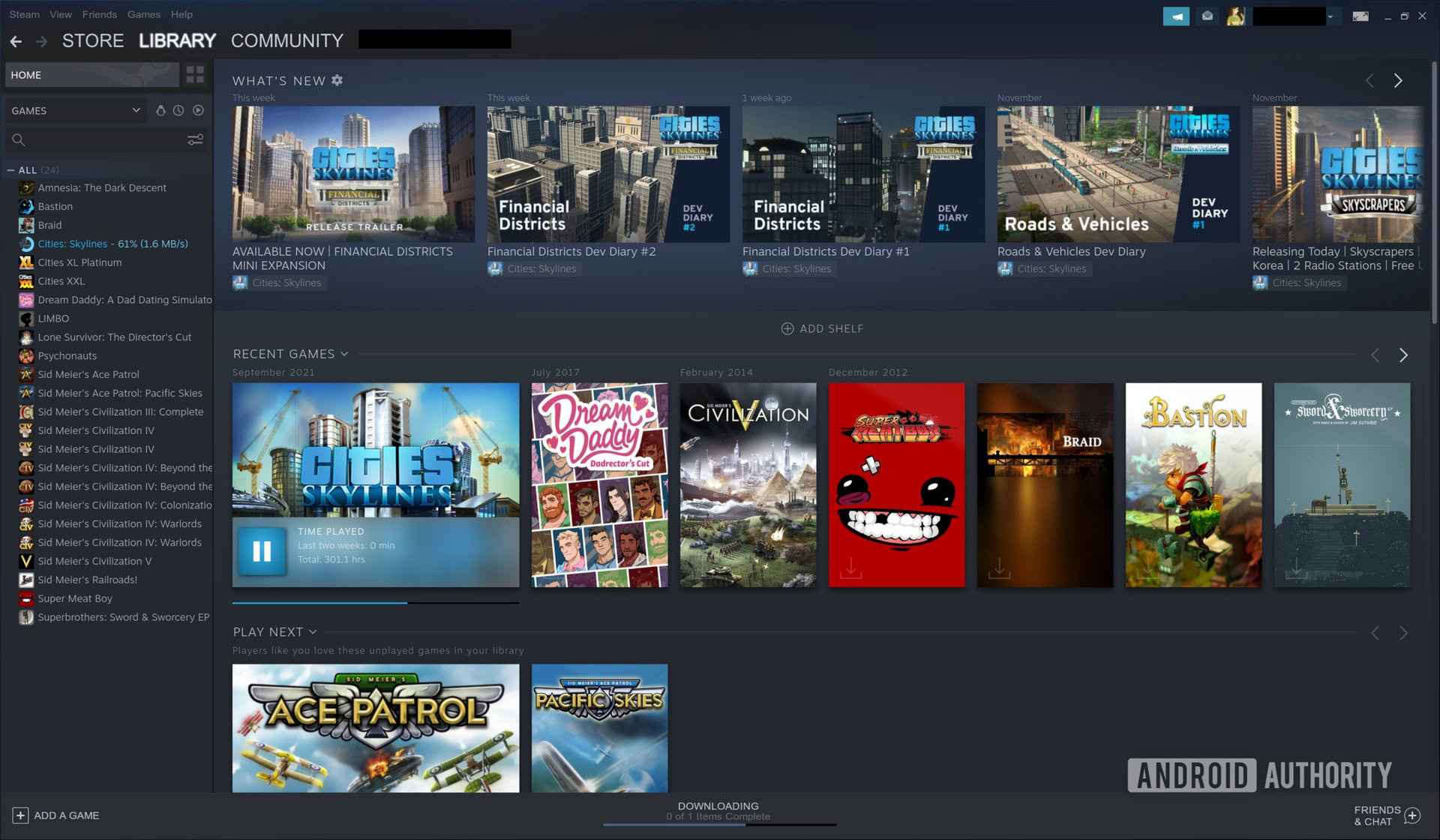Many folks wonder if tools related to Steam are truly safe for their computers. It's a really common concern, especially when you think about all the different programs out there. You might have heard whispers or seen warnings, and that can make anyone feel a bit unsure about what to trust.
There's a lot of talk going around, and sometimes it's hard to tell what's true and what's just someone's opinion. Knowing the real story behind these tools is pretty important, after all, your computer's health and your personal information are on the line. So, we're going to look closely at this question.
We'll talk about what these "Steam tools" actually are and clear up some of the confusion. It's about getting the right information, you know, so you can make smart choices for your gaming setup. We want to help you figure out what's what.
Table of Contents
- Understanding "Steam Tools": What Are We Talking About?
- The "Is It a Virus?" Question: Addressing the Core Concern
- Distinguishing Between Legitimate and Risky Tools
- How Some "Tools" Work (and Why They Can Be Risky)
- Staying Safe: Best Practices for Gamers
- What About Game Hacks and Cheats?
- Community Discussions and Closed Topics
- The Role of Analysis Services (e.g., Any.run)
- Frequently Asked Questions
Understanding "Steam Tools": What Are We Talking About?
When people talk about "Steam tools," it's kind of a big umbrella term. It can mean a lot of different things, you know, from programs made by Valve themselves to things created by other people. So, it's important to get clear on what we mean when we use that phrase.
Some tools are official, like the Steam client itself or the features built right into it. Others are made by independent developers. These can be helpful, but they also bring up questions about safety, which is what we're here to talk about, really.
The Official Steam Ecosystem
The Steam client is the main program you use to buy, download, and play games. It's made by Valve, the company behind Steam. This is the official way to manage your game library and interact with the Steam community. It's built with security in mind, and that's pretty important.
Within the official Steam platform, you can do things like trade items or use the Steam market. My experience tells me that trading in a single window on Steam or using the Steam market is the only truly safe way to handle those kinds of transactions. That's how it's supposed to work, you see.
Third-Party Tools: A Broad Category
Beyond the official stuff, there are many tools made by people who aren't Valve. These are often called "third-party" tools. They might promise to do all sorts of things, like help you manage your game files, track your playtime, or even let you play games in different ways. Some are harmless, some are not, you know.
It's this category of third-party tools that often causes the most worry. People hear about them and then they start to wonder if they're safe. This is where the question "is Steam tools a virus" often comes from, which is understandable, actually.
The "Is It a Virus?" Question: Addressing the Core Concern
The idea that a "Steam tool" could be a virus is a serious thought. Nobody wants to put their computer at risk, so this question naturally comes up. It's a good thing to be cautious, after all.
But just because someone calls something a virus doesn't automatically make it true. It's very important to question everything you hear. Spreading wrong information without any proof can really cause trouble for others, you know, and that's something we want to avoid.
Misinformation: A Real Danger
In the digital world, wrong information can spread very fast. Someone might say a tool is bad, and then that idea gets passed around, even if it's not based on facts. This kind of misinformation can make people scared to use perfectly safe programs, or worse, it can make them trust things they shouldn't.
It's like a game of telephone, where the message gets changed along the way. So, when you hear a claim like "is Steam tools a virus," your first thought should be to look for solid evidence. That's just a smart way to go about things, really.
Personal Experience: Testing the Waters
From my own experience, I've actually tested a program called "steamtools" on my computer. I ran it for 24 hours to see what would happen. This was to get a real feel for how it behaved, you know, and to check if it caused any problems.
The idea behind this particular type of tool, for those who might not know, is that it lets you download games directly from Steam and then play them in offline mode without actually disconnecting from the internet. You do still need to log in, though. My tests for 24 hours didn't show any immediate malicious activity, which was interesting, you know.
Distinguishing Between Legitimate and Risky Tools
It's super important to tell the difference between tools that are helpful and safe, and those that might be dangerous. Not all third-party tools are created equal, you see. Some are built with good intentions, while others are designed to trick you or harm your computer.
This is where knowing the specifics really helps. We can't just say "all Steam tools are bad" or "all Steam tools are good." It just isn't that simple, you know. We have to look at each one, or at least the types of them, individually.
Steam.tools: A Closer Look at a Specific Example
One specific site that often comes up in discussions is `steam.tools`. Based on reviews and automated checks, it appears that `steam.tools` is legitimate and safe to use. It doesn't seem to be a scam website, which is a good sign.
The general review of `steam.tools` is positive. This positive trust score comes from an automated analysis that looks at 40 different pieces of information. So, that's a pretty thorough check, you know, and it helps build confidence in the site.
Trust and Safety Indicators
When a website or tool gets a positive trust score based on many data points, it suggests it's likely safe. These automated analyses check for things like how long the site has been around, if it uses secure connections, and if it's linked to known bad actors. It's like a background check for a website, basically.
A high number of data points, like the 40 mentioned for `steam.tools`, means the analysis is pretty comprehensive. It gives you a better idea of its reliability. This is useful when you're trying to figure out if Steam tools are a virus or something else, you know.
Steamtools.net: A Different Story
Now, let's talk about `steamtools.net`. This is a very different case from `steam.tools`. Reports indicate that `steamtools.net` operates as a phishing platform. This means it's designed to trick people into giving up their private information, like login names and passwords, or even financial details.
They do this through what's called "social engineering attacks." It's basically a clever way of manipulating you into doing something you shouldn't, like entering your Steam login on a fake website. So, it's pretty serious, actually.
Warning Signs and Phishing Risks
The key takeaway here is that `steamtools.net` is not safe. It's important to be very careful with any site that asks for your login credentials outside of the official Steam platform. Phishing sites often look very much like the real thing, which makes them tricky to spot, you know.
If a site claims to be a "Steam tool" but asks for your Steam username and password in a way that feels off, it's a huge red flag. Always double-check the website address in your browser. If it's not `store.steampowered.com` or `steamcommunity.com` for logins, you should be very, very suspicious.
How Some "Tools" Work (and Why They Can Be Risky)
Some tools try to give you features that aren't officially supported by Steam. For example, the idea of playing games in "offline mode without going offline" is a bit unusual. It suggests a workaround, and workarounds can sometimes bring their own set of risks, you know.
Understanding how these tools operate can help you see why they might be a concern. It's not always about direct malicious intent, but sometimes about how they interact with your system. That's a key part of figuring out if Steam tools are a virus or just a risky program.
Offline Play Mechanics
The concept of downloading games directly and playing them "offline without going offline" implies that the tool might be bypassing some of Steam's usual checks. It might be mimicking an offline state to the game itself, while your computer remains connected to the internet. This kind of trickery, while possibly convenient, isn't something Valve supports.
When a tool requires you to log in to Steam for this kind of function, it means it's handling your credentials. That's a sensitive area, and if the tool isn't completely secure, it could put your account at risk. You just never know, really.
The Risk of Lowered Security
Even if a tool isn't a virus, it can still be risky. My information tells me that game hacks, for example, are not necessarily malicious in themselves, but they always carry a risk because they might lower your computer's security. This is a very important point to remember.
When a program messes with how games or the Steam client work, it can create vulnerabilities. It might open up pathways that hackers could exploit, or it could simply make your system less stable. So, even if it's not a virus, it's still a concern for your overall safety, that.
Staying Safe: Best Practices for Gamers
Protecting your computer and your Steam account is pretty straightforward if you follow some basic safety rules. It's mostly about being smart about what you download and where you get your information. You want to be on the safe side, after all.
Being aware of common threats and how to avoid them is your best defense. It's not about being paranoid, but about being prepared. These tips can help you decide if Steam tools are a virus or just a bad idea.
Official Channels are Key
The safest way to get anything related to Steam is directly from Steam itself. This means downloading the client from Valve's official website and only using features built into the Steam platform. If you want to trade items, use the Steam market or the trading system within the Steam client. My information says that's the only safe way, and it's pretty clear about that.
Avoid downloading Steam-related tools from random websites or forums. These unofficial sources are where you're most likely to run into trouble, including programs that might be viruses or worse. It's just not worth the risk, you know.
Question Everything: Your Digital Shield
Always be skeptical, especially when something seems too good to be true. If a "Steam tool" promises free games, unlimited items, or ways to bypass game mechanics, it's probably a trap. Remember, just because someone calls it a virus doesn't make it true, but also, just because someone says it's safe doesn't make it true either.
Do your own research. Look for independent reviews from trusted sources, not just what the tool's creator says. This is your personal shield against misinformation and harmful software. It's about being smart and cautious, really.
Learn more about security practices on our site, there's a lot of good stuff there.
Using Security Software
Having good antivirus and anti-malware software installed on your PC is absolutely essential. These programs act as a frontline defense, scanning for and removing threats before they can cause damage. Keep your security software updated, too, as new threats appear all the time.
Regular scans can catch things you might miss. Even if you're careful, something might slip through, so having that extra layer of protection is a very good idea. It's a key part of keeping your computer safe from anything that might be a virus, or just generally bad for it.
What About Game Hacks and Cheats?
Sometimes, people group "Steam tools" with game hacks or cheats. These are programs designed to give you an unfair advantage in games, like seeing through walls or having unlimited health. While they might seem appealing to some, they come with significant risks, you know.
Game hacks often modify game files or how the game interacts with your system. This kind of interference can make your computer less secure. It's not malicious in the sense of being a virus, but it can open up vulnerabilities that could be exploited later.
The Inherent Dangers
Beyond the security risks, using game hacks can get your Steam account banned. Game developers and Steam have systems in place to detect cheating, and if you're caught, you could lose access to your games and account permanently. That's a pretty big consequence, actually.
So, while the question "is Steam tools a virus" might not apply directly to all hacks, the security risks and potential for account loss make them something to stay far away from. It's just not worth the trouble, in a way.
Community Discussions and Closed Topics
You might sometimes see online discussions about Steam tools where the topic is suddenly "closed to further replies." This can happen for a few reasons, and it's something to pay attention to. It usually means the conversation has gone off track or is becoming unhelpful.
For instance, if a discussion about "is Steam tools a virus" turns into people spreading unproven claims or arguing, moderators might step in. They do this to keep the community safe and focused, you know.
Why Discussions Get Locked
A topic might be closed if it's promoting dangerous software, spreading false information, or if it's just gotten too heated. When you see "No registered users viewing this page" on a closed topic, it just means no one is currently looking at it at that moment. It doesn't mean the information inside is necessarily wrong or right, just that the conversation is over.
It's a way for community managers to control the flow of information and prevent harm. So, if a topic about "is Steam tools a virus" is closed, it's often for the good of the community, basically.
The Role of Analysis Services (e.g., Any.run)
When people are trying to figure out if a file is safe, they sometimes use online services that analyze suspicious programs. One example mentioned is Any.run. This is an interactive service that gives you full access to a guest system, which is like a virtual computer. You can run a suspicious file there to see what it does without risking your own PC.
These services can be really helpful for investigating if Steam tools are a virus. They provide detailed reports about a program's behavior, like what files it touches or what network connections it makes. It's a pretty powerful way to check things out, you know.
How These Services Help
Any.run and similar services can show you "signature artifacts" and map them to things like the MITRE ATT&CK™ matrix. This is a framework that describes common attacker tactics and techniques. So, if a tool shows behavior that matches known attack patterns, these services can flag it. This gives you more information about its potential risks, you see.
You can find more information about these signature artifacts and their mapping in the full report provided by the service. It's a very technical way of looking at a program's actions, and it helps experts understand what it's truly up to, really.
Limitations of Reports
It's important to remember that information in these reports could be affected by user actions. If someone interacts with the program in the guest system in a certain way, it might change the outcome of the report. So, while these services are great, their findings are provided for the user to interpret, and they aren't always the final word.
My own test of "steamtools" on my PC for 24 hours was a hands-on check, which complements these automated analyses. It's about gathering as much information as you can to make an informed decision about safety. You want to be thorough, right?
For more detailed information on cybersecurity threats, you might want to check out resources like this general cybersecurity information site.
You can also link to this page here for more online safety tips.
Frequently Asked Questions
What is steam.tools?
Steam.tools appears to be a legitimate and safe website. It's not considered a scam. Its positive trust score comes from an automated check of many different data points, suggesting it's a reliable resource. It's generally seen as a safe "Steam tool" to use.
Is steamtools.net safe?
No, `steamtools.net` is not safe. It operates as a phishing platform. This site is designed to trick people into giving up sensitive information, like their Steam login details or financial data, through deceptive tactics. You should avoid it completely.
Can Steam tools get you banned?
Some "Steam tools," especially those that offer game hacks, cheats, or try to bypass official Steam functions, can absolutely get your account banned. Steam has systems to detect unauthorized software. Using such tools risks losing access to your games and your entire Steam account. It's a very real danger.



